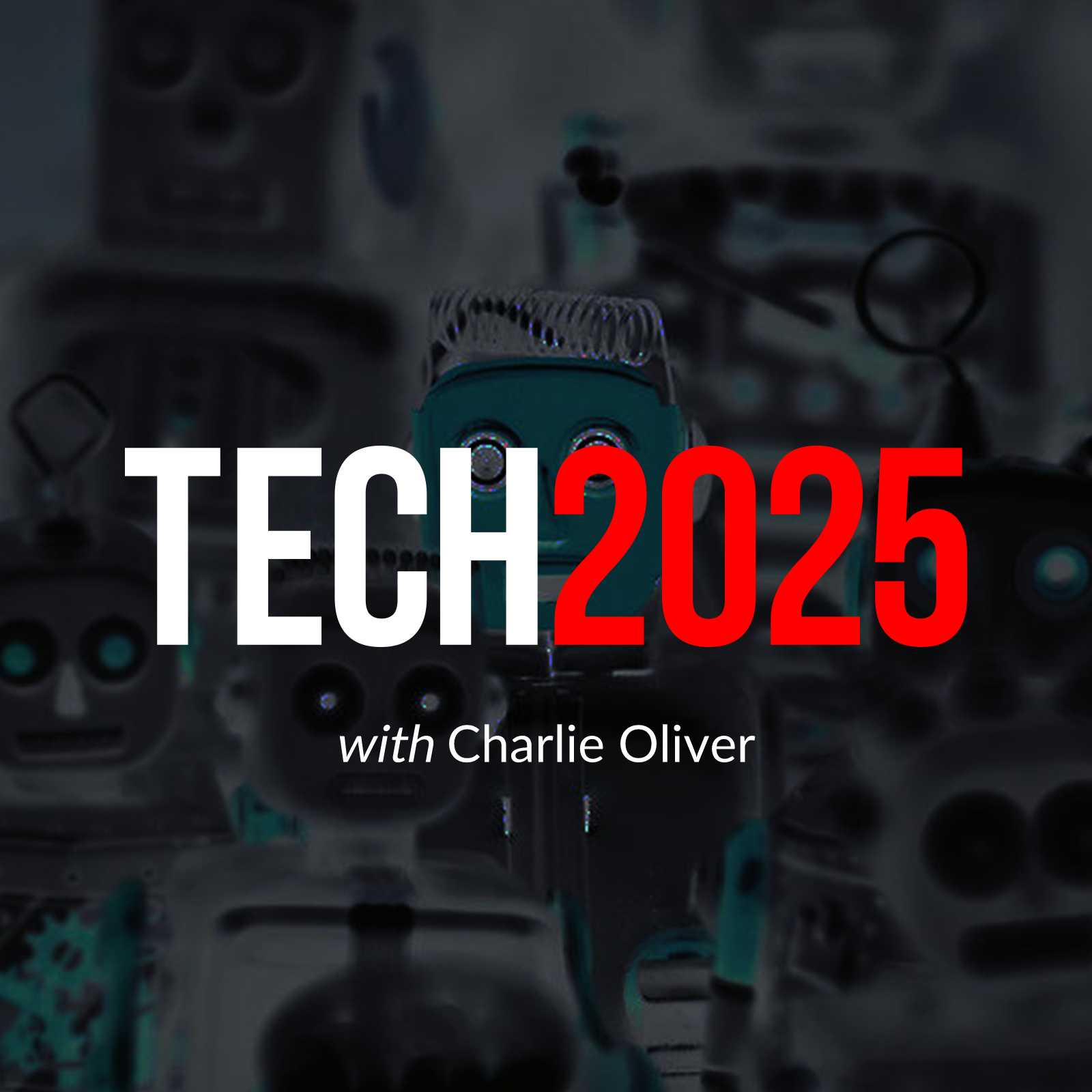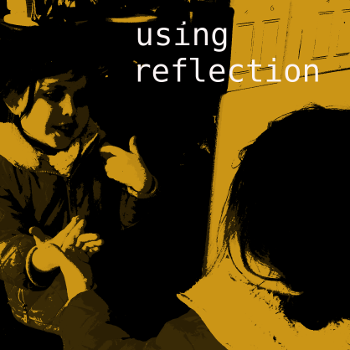Tech 2025 Podcast - Machine Learning Superstar
I recently had the pleasure of going on the Tech 2025 podcast with Charlie Oliver. Charlie is a gifted interviewer and communicator, and the Tech 2025 podcast is really the best when to comes to understanding how emerging technology is affecting the average person.
Topics Discussed and Show Notes
Check out the Show Notes Page Here
Bullet points for what we discussed:
How you can miss one revolution, and then go on to define another one. Max missed the early mobile revolution and then went on to have a lot to do with the rest of mobile;
The most important thing you need to know about machine learning to grasp the potential of the technology and to understand where it’s going in the future.
Whether or not tech companies are doing a good job of presenting technologies with a reasonable balance between hope and hype;
Max’s take on why Mark Zuckerberg was wrong to say that Facebook will solve hate speech on Facebook using machine learning within 10 years (according to Max, “It’s not going to happen!”);
Max’s “Under the Radar” prediction for 2019 (the technologies no one is paying attention to that will likely be the breakout innovations that make a big impact).
Additional Commentary - My Podcast Listening Habits
I am starting to come to terms with how personal podcast listening habits really are. I copped out a little bit when describing my favorite podcasts to Charlie. Yes, This Week in Startups and Planet Money are great podcasts, but they are also among the most popular and it’s not exactly gasp-inducing to mention them.
Even though I recommend people absorb a variety of viewpoints, I still hold back too much on my conservative and libertarian podcast listening habits. So one in particular I really should have mentioned which is Contra Krugman . I listen to that economics podcast every single week, and it’s hosted by libertarians Tom Woods and Bob Murphy who both have excellent and long running podcasts of their own.
They give a rebuttal to Paul Krugman’s New York Times article (and sometimes they branch out a bit). This is really important because while I usually preface most of my podcast recommendations with “I don’t agree with them on everything” - I am 100% on board with the idea that the modern consensus on economics has completely failed to bring us the tools necessary to make good predictions or to understand how the world works.
Along the same lines, I would recommend Naomi Brockwell’s Crypto Podcast called “Bitcoin, Blockchain, and the Technologies of our Future”. I find her commentary there to be well balanced as opposed to many in the space who are either “partisans” (yeah there’s a lot of Bitcoin infighting) or people trying to pawn off their alts (I can’t believe that’s a valid English phrase - but that’s where we are now). Naomi’s podcast has proven valuable over a long period of time - which is important in the Crypto world.
Speaking of the Crypto World, Andreas Antonopoulous is my main person to check out when getting a deeper understanding of the tech trends of Bitcoin and Ethereum.
I also LOVE history podcasts, and I listen to Dan Carlin’s Hardcore History when it comes out, and I’m starting to get into “History that Doesn’t Suck” and “History on fire”.
I’m happy to get into more of my podcast listening habits more in the future.
Additional Commentary - What I Want People to Know about Machine Learning
I also want to add to my answer on what I want people to know about machine learning and AI. I touched on this in the interview, but in Episode 20 I talked about the myth of perfect information when it comes to Machine Learning.
I think that many people have this idea of the future - and it’s a scary, Orwellian future - where we reach the end of the illusion of free will. I don’t want to get into the free will debate, and I actually believe we have it. But in this particular view of the world, free will is only an illusion and once our machines know enough about us and gather enough data, all human action will be predictable. Therefore, less of our lives will be left up to choice and there will be no more work for us to do.
Not only do I think this idea is dead wrong and misunderstands the nature of technology and information - it leads people to make the wrong prescriptions on how to anticipate new technology, both on the personal level and the public policy level. For example, some people believe that in the future, a large swarth of the population will have nothing to do but collect a Universal Basic Income as the primary means of survival.
This is setting expectations way too low for most of humanity! We’ve always adjusted to technological change by restructuring the economy and finding new jobs and careers. And no - they will not all be in coding. The “this time it’s different” crowd is always wrong.
That said, it’s tough to explain my version of the future because it’s impossible to predict how this all plays out, and it is never without pain and adjustment. But I find the idea that large groups of people will simply be worthless on the market so we might as well just give up to be contemptible and elitist.
Finally - another misconception some might have of AI and Machine Learning is that companies always point the most powerful algorithm at a problem. So for example, if a machine beat a human in chess in 1998 - any company that claims to use ML today must be at least that powerful. This couldn’t be further from the truth! Often times, simpler and less powerful algorithms are used in business and in consumer products.
There are a variety of reasons for this. One is that often the ML objective function is different than what the business is optimizing for, and therefore investing in ML doesn’t actually help the business and it’s better to have a more explainable, understandable algorithm. Specifically, the smarter an algorithm gets, the more that bias in the dataset can become a big problem.
A Few more Quick Things
Here’s a techcrunch article that I mentioned about Dennis Crowley using the marauder’s map as an inspiration for Foursquare.
Also - in the interview I never properly followed up about the banks having their hands in Bitcoin. They most certainly will - not just your local banks, but central government banks around the world. That said - one of Bitcoin’s most revolutionary properties that can’t be stressed enough is a consistent and fixed monetary policy; there will only ever be 21 million bitcoin. This can not be changed, and therefore Bitcoin can play a role in regulating governments and banks just as much as banks and governments can play a role in regulating bitcoin.
Related Episodes
Episode 40 with Charlie Oliver on my Show
Episode 38 with our predictions panel
Episode 29 with Clyde Vanel
Episode 20 on AI and Perfect information
Episode 18 on AI embellishment vs fact
Episode 10 on Zuckerberg’s Testimony and the 5-10 year rule
Episode 7 with Dennis Crowley in Inspiration for New Products
Appearance on Run Your Mouth podcast which is mentioned (my description may not be 100% right - but I was trying to tell a story!)
My Off-The-Cuff Predictions for 2019
These might not be what I would say if I wasn’t on the spot, but I’m going to write down my 2019 predictions here. That way, we can come back to them in a year, and see what happened. Just holding myself accountable here! I need to go more out on a limb next time:
Waymo can announce expansions of its service (more cities, more people)
Some of the fitness applications like Peleton are interesting. Will the inflection point come in 2019?
People will start hearing more about the 5G. Is it just faster 4G? Can it surprise us in the next couple year? I’m not confident that it wont be a big yawn.
Crypto-currency always has stuff that pops out of nowhere. “You don’t throw so much against the wall and not have something stick” - this is in reference to an Ethereum project. However, I don’t think the price will pop in 2019




